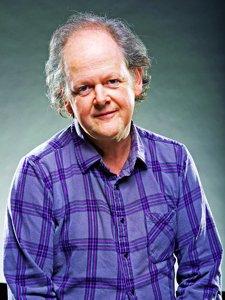
Craig Brown
The Mail on Sunday
In September 2021 he reviewed Nina Simone’s Gum, by Warren Ellis, a musician who kept a discarded piece of Simone’s gum after a concert. In his introduction Nick Cave called the book a testament to the transcendent power of music. Craig wavered throughout between thinking this was either ‘(a) a powerful statement of aesthetic and spiritual truth or (b) codswallop’. He eventually concludes: ‘I suppose it’s crackers but, if so, it’s no more so than the Holy Shroud of Turin or, indeed, the last piece of gum chewed by Alex Ferguson as boss of Manchester United, which is said to have been sold for £390,000.’ He was also intrigued by another unlikely venture: TV cook Delia Smith’s book on the meaning of life, You Matter: The Human Solution. He wrote that ‘in her no-nonsense way, she makes the meaning of life seem rather simpler than baking the perfect leek and goat’s cheese tart at gas mark 5’. He wondered if her book might not be ‘the first of a series of new philosophical works from the leading TV chefs: Gordon Ramsay On “Plating Up Postmodernism”, Ainsley Harriott On “One-Pot Logical Positivism”, Mary Berry On “Language, Truth And Sticky Toffee Pudding”.’ About as far away from deep thinking as it is possible to get was Sarah Ferguson’s novel, Her Heart For A Compass. In the book the impetuous Lady Margaret searches for love, but Craig was not convinced by the authenticity of the language. ‘In 1869, Lady Margaret’s mother writes her a letter, in which she says: “I will update you on my own news separately.” Yet the first recorded use of the verb “update” was not for another 75 years, in 1944,’ he wrote. ‘Twenty pages later, Margaret says she wants to build “a safe space” for children, a term that was first used in the 1960s, largely by the New York gay community.’ Craig always went the extra mile when it came to research. Every week he entertained while educating, and it is a measure of the esteem in which he is held that, after his departure was announced, the books desk received several emails from publishers, including those whose books he’d rubbished, expressing their regret. A review by Craig was worth a thousand advertising posters.